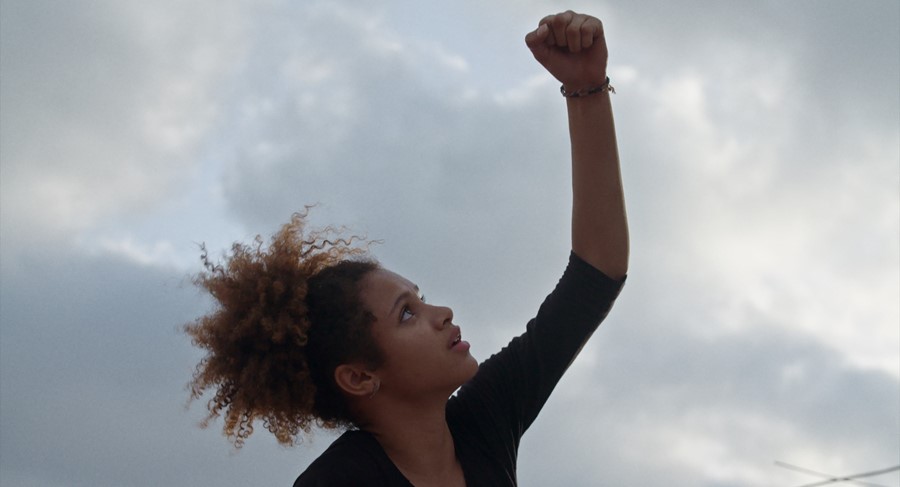Nabil Ayouch’s new film focuses on a group of underprivileged teens as they learn how to rap at a local youth centre
The ‘inspirational teacher’ films of Hollywood all tend to follow the same basic script: an unorthodox teacher gets to work with a class of no-hopers despite the disapproval of the stiffs in charge, only to win them over with spectacular results and/or a triumphant pop concert. They are films that celebrate individuality while secretly conforming to type, which might just be the key to their appeal. But Nabil Ayouch’s Casablanca Beats, a teacher-feature of great charm which competed for last year’s Palme D’Or, takes a somewhat different tack to the genre. It’s like a social-realist Sister Act 2, as far-fetched as that sounds.
The film takes us inside the classroom with hip-hop teacher Anas, who starts a course at a local youth centre for some of Casablanca’s most underprivileged kids. Played with quiet authority by a real-life Moroccan rapper-turned-educator Anas Basbousi (aka Bawss), Anas is cold with his pupils at first, berating them for their weak rhymes and impassiveness when his criticism reduces one boy to tears. (“Maybe you’ve got nothing to say because your family spoiled you,” he tells the poor lad, who breaks down as he tells the class he sometimes goes to bed hungry.) The idea is to provoke the pupils into questioning what it is they want to say, of course, and his methods soon spark earnest debate among the kids about what’s fair game for rap lyrics, from religion to family and politics. In between, we get glimpses into these teenagers’ difficult home lives that ground these discussions in lived experience.
Ayouch, a French-born director of Moroccan and Tunisian parentage who moved to Casablanca in the 1990s, brings a strong feminist slant to this material – a welcome perspective given the genre’s patchy track record on gender relations, and a reminder of hip-hop’s essentially protean nature, its ability to mean different things to different people in different places, at different times. Through the girls in Anas’s class, we see the genre’s potential as a vehicle for feminist ideas in a heavily patriarchal society, as in one scene where a pupil freestyles a verse aimed at her controlling brother – “for you women are slaves, it makes me sick”. But Ayouch also finds moments where the same societal prejudices these kids rail against reproduce themselves in the classroom, as in a scene when the same girl fails to side with a classmate who is criticised by the boys for not wearing a headscarf.
These scenes are punctuated with brief magical-realist interludes where the kids let their talents soar among the rooftops and criss-crossed washing lines of Casablanca’s slums. But reality is always quick to catch up, as some of the school’s parents voice their displeasure at seeing their kids exposed to such heathen music. In a way, Casablanca Beats might have benefitted from a more committed character study of one of the students, or perhaps of Anas, a brooding outsider figure who sleeps in his car and seems to have lost his faith. As it is, it’s got one foot in social commentary, the other in the crowd-pleasing tropes of its genre – but it’s a balancing act that the film walks with integrity.
